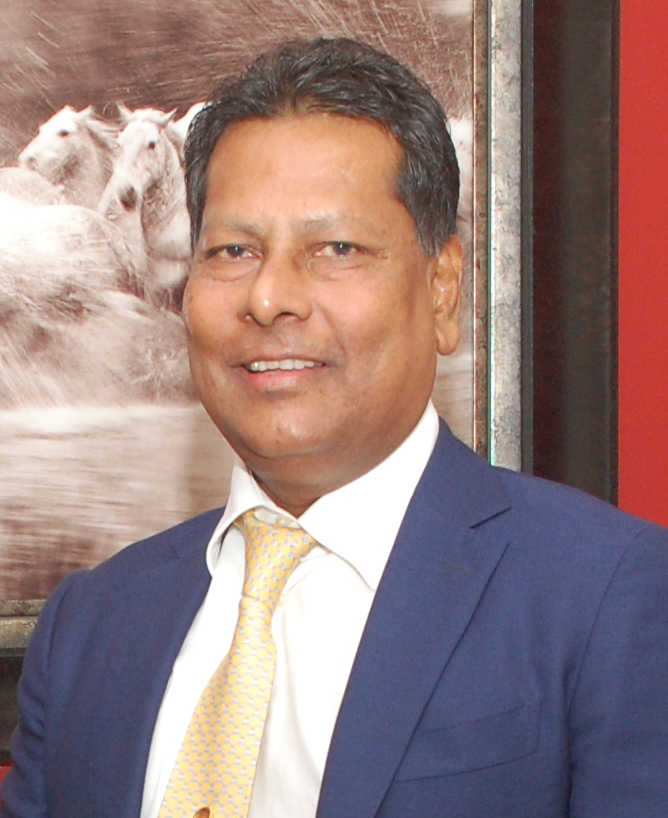With international corruption watchdog Global Witness estimating a potential loss for Guyana of up to US$55 billion over the 40-year period of the licence for the offshore Stabroek Block, Change Guyana presidential candidate Robert Badal has said if he is elected to office he will set up a formal inquiry into the processes and negotiations surrounding oil and gas contracts.
“We must hold our government and state officials accountable for compromising our long term interest,” Badal said in a statement that was issued yesterday in light of recent reporting on Global Witness’s estimates and its appeal to block operator ExxonMobil to renegotiate the licence so that Guyana obtains a fair deal.
Stabroek News reported last Friday that Global Witness Senior Campaigner Jonathan Gant urged the renegotiation in a letter to Exxon’s Country Manager Rod Henson while asking the company to respond to a number of statements from an analysis done.
The data, according to Global Witness, will be used as it compiles a report on this country’s oil sector, which is to be published soon.
In his statement, Badal said the revelations in the media were “highly unsettling” to all Guyanese. He noted that the International Monetary Fund (IMF) has also reported that Guyana has not received a good deal by industry standards.
“[In the] absence of transparency in the process of awarding oil and gas blocks and the terms of the contracts under both PPP and APNU administrations, a Change Guyana Government will set up a Commission of Enquiry to review the processes and documentary evidence available and interrogate state officials to pinpoint responsibility and outline a template for future contracts,” he said.
“Our objective is to inform the Guyanese public what went wrong, those responsible, and how we will ensure a more transparent process in awarding of oil and gas contracts and management of oil and gas resources to ensure that we receive our fair share of our natural patrimony and that these resources are used in the best interest of all Guyanese,” he added.
Badal also noted that Change Guyana has already indicated our intention to renegotiate all contracts and its preference for royalty based contracts moving forward, instead of the complex production sharing arrangements currently in force.
In the letter to Henson, Gant said that with the recent announcement of ExxonMobil’s 16th discovery and its increased estimate of reserves of over 8 billion barrels of oil equivalent, Global Witness needed further clarity for updated analysis. “We would welcome your comments on the following statements. If any are inaccurate, we would be grateful if you would say in what way,” the letter states.
It explained that it had hired the Berlin-based financial analysis and commercial advice organization, OpenOil, to undertake an analysis for it and it is from those findings that it wanted the company to address some areas of concern.
“OpenOil has analysed what revenue Guyana will receive if Exxon produces its current estimated 7.9 billion barrels of oil. OpenOil is a company that produces natural resources financial analyses and conducts training for governments and organizations. OpenOil has used data provided by Rystad and Exxon’s public statements and assumes a price of US$65/barrel. According to OpenOil’s analysis, the Stabroek licence gives Guyana only a 52 percent share of oil revenues. A 69 percent share would have been reasonable. The IMF states that a reasonable government take for oil projects is between 65 and 85 percent,” Gant stated.
“As a result of this deal, Guyana will receive an estimated US$168 Billion and not US$223 Billion. Guyana will lose out on up to US$55 billion over the 40 year life of the license. In 2018, the IMF reportedly stated that Guyana’s oil licenses ‘enjoy royalty rates well below what is observed internationally’. In 2018, OpenOil stated that ‘Stabroek yields relatively low government take by almost any standard’. This analysis shows that the terms of the Stabroek licence are exploitative and unjustifiably bad,” he added.
Global Witness argues that “Exxon can afford for Guyana to get a better deal” and that if the country obtains just 69% share of the Stabroek revenues, the lower end of scale of the IMF’s reasonable take, that Exxon would still be able get a return on its investment of 18 percent as per the suggestions.
The PSA between Guyana and ExxonMobil’s affiliate, Esso Exploration and Production Guyana Limited (EEPGL), and partners CNOOC, NEXEN Petroleum Guyana Limited, and Hess Guyana, states that up to 75% of the revenue earned from production could be used for expenses and to recover the companies’ investment. This was estimated at US$5 billion by the year 2020, when production was estimated to begin at the Liza-1 well. The remaining 25% – profit oil – is to be split evenly between Guyana and ExxonMobil.
EEPGL holds 45% interest in the Stabroek Block while Hess Guyana Exploration Ltd has 30% and CNOOC Petroleum Guyana Limited holds the remaining 25%.






